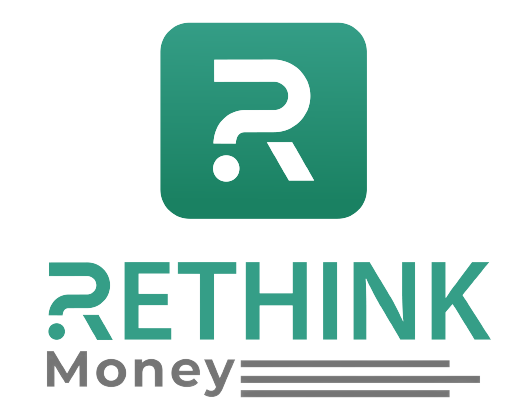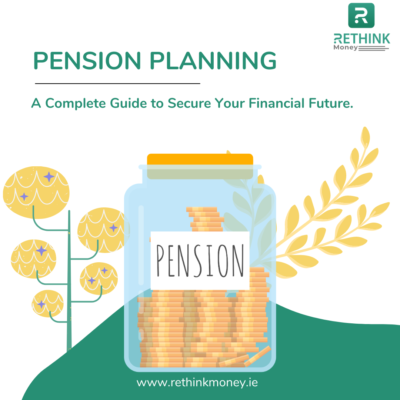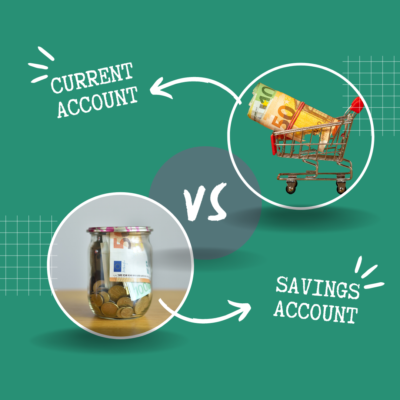Pension planning is essential to securing your financial future, ensuring you have the funds needed to enjoy your retirement years without financial stress. We specialise in helping individuals navigate the complexities of pension planning. In this blog, we’ll explore pension planning in Ireland, discuss pension contributions and pension tax relief, and answer some frequently asked questions about pensions.
Understanding Pensions in Ireland
There are three main types of pensions in Ireland:
- State Pension: A government-provided pension paid to individuals who have reached the State Pension age and have enough social insurance contributions (PRSI). It includes the widow pension benefits for surviving spouses or civil partners.
- Occupational Pension: A pension scheme set up by an employer to benefit its employees. Both the employer and employee usually make contributions.
- Personal Pension: A pension plan set up by an individual with a pension provider, separate from any employment pension.
Benefits of Pension Planning
Proactive pension planning offers several key benefits:
- Long-term financial security: Ensuring you have a steady income after retirement
- Tax relief on contributions: Reducing your tax payments while saving for retirement.
- Potential for investment growth: Maximising your pension fund through smart investments, and earning tax-free interest.
Pension Contributions
Making regular pension contributions is the foundation of successful pension planning.
Understanding how much to contribute and the different types of contributions are crucial to
maximising your pension savings. Here’s an overview of pension contributions in Ireland
- How to start contributing
First, choose a pension plan that suits your needs, whether it’s an occupational pension through your employer or a personal pension with a pension provider. Set up regular payments, either through payroll deductions (for occupational pensions) or direct debits (for personal pensions). - Contribution limits
In Ireland, the maximum amount you can contribute to your pension and still receive tax relief depends on your age and income. The age-related percentage limits are as follows:
- Under 30 years: 15% of net relevant earnings
- 30-39 years: 20% of net relevant earnings
- 40-49 years: 25% of net relevant earnings
- 50-54 years: 30% of net relevant earnings
- 55-59 years: 35% of net relevant earnings
- 60 years and over: 40% of net relevant earnings
Additionally, there’s an earnings cap of €115,000, meaning that tax relief on pension contributions is limited to this amount.
- Employer contributions
If you have an occupational pension, your employer may also contribute to your pension savings. These contributions are Free money as it is the company’s money and they claim that expense as a business expense, then claim corporate tax relief on their end. Therefore this does not affect your annual allowance for tax relief.
It’s essential to regularly review your pension contributions and adjust them as needed to ensure you’re on track to meet your retirement goals. A financial advisor, like Rethink Money, can help you determine the optimal contribution levels based on your financial circumstances and retirement objectives.
Pension Tax Relief
In Ireland, you may be eligible for pension tax relief on your contributions, effectively
reducing your tax bill. Here are the key points to understand:
- Eligibility criteria
You must be under 75 and have a pension plan that is eligible for pension tax relief. The tax relief applies to both personal pension plans and occupational pensions. - Tax relief rates and bands
The tax relief rate depends your gross income level. If you earn over €40,000 per year you are generally eligible for relief at 40% (unless you have extra tax credits e.g. from your spouse). This means for every €100 you contribute to your pension you will receive €40 back in tax credits. - Claiming tax relief
For occupational pensions, tax relief is typically applied automatically through your employer. For personal pensions, simply inform Revenue via www.myaccount.ie, once the plan is setup. Your credits are automatically applied the very next month.
Choosing the Right Pension Plan
Selecting the right pension plan requires careful consideration of your financial goals, risk tolerance, and pension provider options. Here are a few tips:
- Assess your financial goals
Consider how much of an income you’ll need for a comfortable retirement and how long you have until retirement. - Understand your risk tolerance
Evaluate your comfort level with investment risk and select or get advice on a pension plan that matches your risk profile. - Compare pension providers
Research or get advice on various pension providers, comparing fees, investment options, and performance to find the best fit for your needs.
Tips for Successful Pension Planning
Here are some recommendations for effective pension planning:
- Start early: The sooner you start contributing to your pension, the more time your investments have to grow.
- Regularly review your pension plan
Assess your plan periodically to ensure it’s still meeting your financial goals, and make adjustments as needed. - Diversify your investments
Spread your investments across different asset classes (types of investments) to manage risk and potentially enhance returns. - Seek professional advice
Consult with a financial advisor, like Rethink Money, to ensure your pension planning is tailored to your unique circumstances and goals.
Our Advice
Pension planning is crucial for ensuring a secure financial future, and taking the time to understand pension contributions, tax relief, and investment strategies can make a significant difference in your retirement income. By starting early, regularly reviewing your pension plan, diversifying your investments, and seeking professional advice, you can maximise your pension’s potential and enjoy a comfortable retirement.
Our expertise can help you create a tailored pension plan that aligns with your financial goals and secures your financial future. Don’t hesitate to reach out to us for guidance and support in your pension planning journey.
FAQs
Q. Can I have multiple pensions at the same time?
A. Yes, you can have multiple pensions at the same time, but it’s important to keep track of them to ensure you’re not paying unnecessary fees.
Q. What happens to my pension if I die?
A. The treatment of your pension after your death will depend on your individual plan. In most cases, your pension would be passed on to your spouse or beneficiaries tax-free.
Q. Can I still contribute to a pension after I retire?
A. In most cases, you cannot contribute to a pension after you retire, but there are some exceptions, such as if you continue to work part-time.
Q. Can I access my pension early if I’m terminally ill?
A. Yes, if you’re diagnosed with a terminal illness, you may be able to access your pension early.
Q. What is the difference between a defined benefit and defined contribution pension plan?
A. A defined benefit plan provides a guaranteed income in retirement, while a defined contribution plan’s income is based on the amount contributed and the investment returns.
Q. What is the retirement age in Ireland?
A. The current retirement age in Ireland is 66, however there is a scheme to receive a state pension-income at 65. This has been changed a few times in the last few years, and may change again in the future, so be prepared.
Q. Can I receive a State Pension if I’ve never worked?
A. You may still be eligible for a State Pension based on your spouse or civil partner’s social insurance record.
Q. What is the maximum tax relief on pension contributions?
A. The maximum tax relief on pension contributions is currently €46,000 per annum or 100% of your net relevant earnings, whichever is lower.
Q. Can I take out a loan from my pension plan?
A. No, it is not possible to take out a loan from a pension plan.
Q. Can I withdraw my pension early?
A. Yes, depending on your plan, some can withdraw benefits at age 50, although it is not always advisable. For example, you get to access the tax-free lump sum once in your lifetime and doing this too early may not make financial sense.
Q. Can I change my pension plan?
A. Yes, you can change your pension plan if it no longer meets your needs.
Q. How do I know if I’m eligible for pension tax relief?
A. You must be under 75 years old and have a pension plan to qualify for pension tax relief. Tax relief applies to both personal and occupational pensions.
Q. Can I have more than one pension plan?
A. Yes, you can have multiple pension plans, such as an occupational pension from your employer and a personal pension plan.
Q. What happens to my pension when I change jobs?
A. If you have an occupational pension, you may be able to transfer it to your new employer’s pension scheme or a personal pension plan. Consult with a financial advisor to understand your options.
Q. When can I access my pension funds?
A. Generally, you can access your pension funds from the age of 60, but the exact age depends on your pension plan’s terms and the type of pension.
Q. How are my pension funds taxed upon withdrawal?
A. In most cases, a portion of your pension is tax-free, while the remainder is taxed at your marginal income tax rate. However, tax treatment depends on the pension type and specific circumstances.




